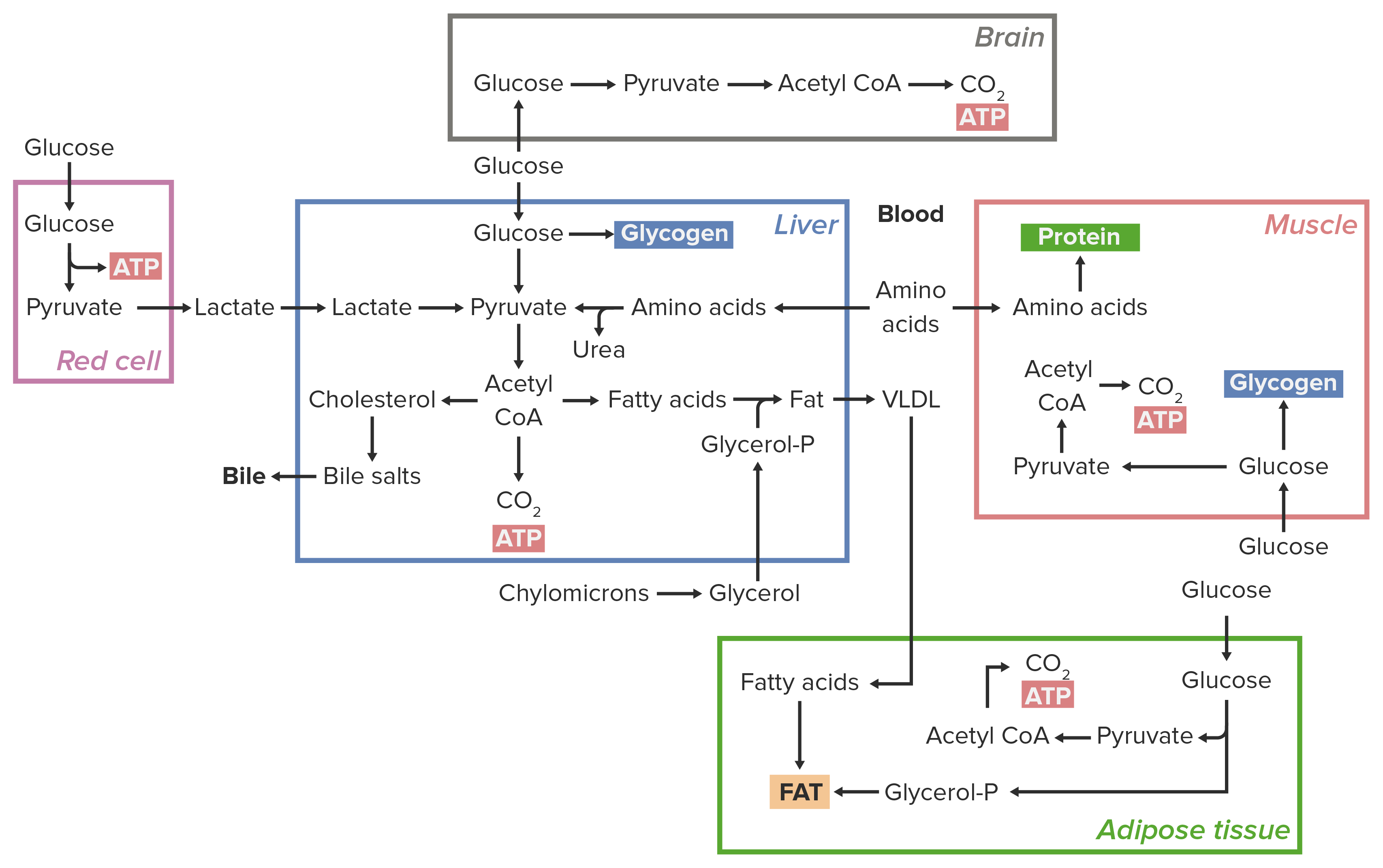Playlist
Show Playlist
Hide Playlist
Definition of Energy
-
Slides 14 EnergyEnzymesMetabolism CellBiology.pdf
-
Download Lecture Overview
00:01 In this lecture, I'd like to introduce you to energy, enzymes, and how they work in metabolism. 00:08 At the end of this lecture, you should be able to define the laws of thermodynamics as they apply to free energy. 00:14 And in addition to that, explain the role of enzymes in lowering activation energy in biochemical pathways or what we consider metabolism. 00:25 So to begin with, let's think about energy a little bit. We have two forms of energy to deal with, potential energy and kinetic energy. 00:35 In terms of biology, potential energy is stored in the bonds of food. 00:40 You'll recall in chemistry that we had carbon atoms and we were thinking about moving electrons down electron levels to release energy, and moving them up, adding energy to them. 00:54 So energy in let's say glucose, which is our primary metabolic molecule, is potential energy stored in carbon-carbon bonds. 01:03 So when we release that energy, it is released in the form of kinetic energy which we use or cells use to do things, to go about their daily business. 01:14 So in this process, we begin with, for example, our carbons, coming from carbon dioxide in the air and we are going to add the energy from sun, in order to use a little bit of water to stick these carbon dioxide molecules together, we are adding energy from the sun in order to create glucose, oxygen, and this glucose will then become the substrate for cellular respiration. 01:45 But before we really get into the details of that process, we need to establish how enzymes and energy work together, and what the concept of free energy is. 01:57 When we take electrons and move them from one molecule to the other, we either need to add energy or remove energy. 02:06 You'll recall redox reactions in which losing an electron is oxidation, so one molecule may pass its electons to another, and that molecule has become oxidized, and then the other molecule, cause this always works in pairs, will gain an electron and it has become reduced. 02:28 Now it gains but it's reduced, but keep in mind electrons are negatively charged, so it's a reduction in charge. 02:36 And oxidation is adding charge.
About the Lecture
The lecture Definition of Energy by Georgina Cornwall, PhD is from the course Energy, Enzymes and Metabolism.
Included Quiz Questions
Which of the following describes the reduction of a molecule?
- Gain of an electron
- Gain of a proton
- Loss of a proton
- Loss of an electron
- Gain of a neutron
Customer reviews
5,0 of 5 stars
| 5 Stars |
|
1 |
| 4 Stars |
|
0 |
| 3 Stars |
|
0 |
| 2 Stars |
|
0 |
| 1 Star |
|
0 |
I like how Dr. Cornwall recaps chemistry and relation to energy to cells. Her hand motions help with my learning and understanding. Thank you.




